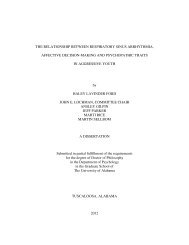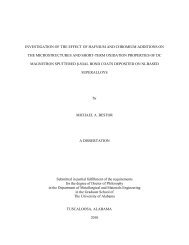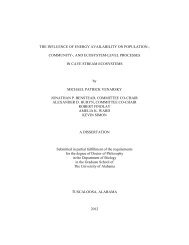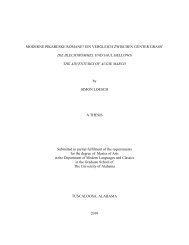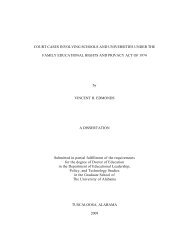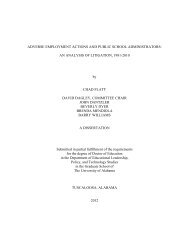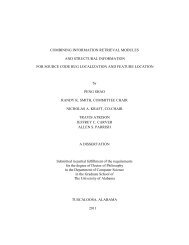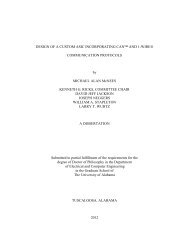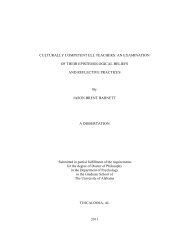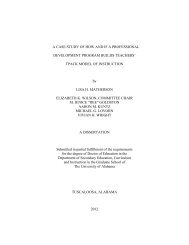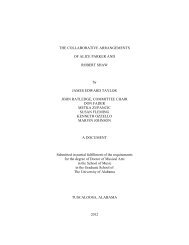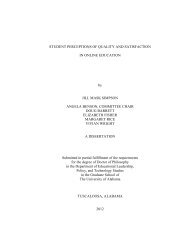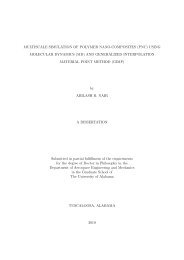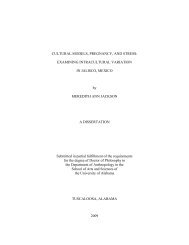Copyright Malvin Porter, Jr. 2010 - acumen - The University of ...
Copyright Malvin Porter, Jr. 2010 - acumen - The University of ...
Copyright Malvin Porter, Jr. 2010 - acumen - The University of ...
Create successful ePaper yourself
Turn your PDF publications into a flip-book with our unique Google optimized e-Paper software.
adult literature, QOL/LS research in children is limited (E. S. Huebner, 2004). Existing research<br />
has mainly focused on life satisfaction as an outcome variable. Adolescent studies have shown<br />
that age, gender, and socioeconomic status moderately contribute to subjective well-being,<br />
whereas self-concept, extraversion, internal locus <strong>of</strong> control contribute significantly to children’s<br />
social-emotional well-being (E. S. Huebner, 1997). Daily life events have been shown to be the<br />
most powerful contributor <strong>of</strong> QOL/LS (McCullough, Huebner, & Laughlin, 2000).<br />
QOL/LS relates to a variety <strong>of</strong> health and risky behaviors in children and adolescents<br />
(Flashpohler et al., 2009) and is negatively related to depression, anxiety, and social stress<br />
(Gilman & Huebner, 2006b). Lower QOL/LS is associated with substance use, and aggressive<br />
behaviors such as physical fighting, weapon carrying, and being injured or threatened with a<br />
weapon (Valois et al., 2001; Zullig, Valois, Huebner, Oeltmann, & Drane, 2001).<br />
Consideration <strong>of</strong> QOL/LS is important because children who report high levels <strong>of</strong><br />
QOL/LS tend to report positive school experiences, higher grade point averages, better peer<br />
relationships, lower levels <strong>of</strong> anxiety and depression, higher levels <strong>of</strong> hope and personal control<br />
than children who report low QOL/LS (Gilman & Huebner, 2006a). Research suggests that<br />
QOL/LS may mediate the relationship between stressful life events and internalizing behaviors,<br />
and moderate the relationship between stressful life events and externalizing behaviors<br />
(McKnight, Huebner, & Suldo, 2002; Suldo & Huebner, 2004). Thus, a distinguishing the<br />
relationship between QOL/LS and aggressive acts may suggest interventions that improve<br />
children’s academic, psychological and social adjustment.<br />
QOL/LS and Bullying<br />
Bullying is a common and potentially serious form <strong>of</strong> school violence and is associated<br />
with serious negative social and emotional consequences (Elin<strong>of</strong>f, Chafouleas, & Sassu, 2004).<br />
28



